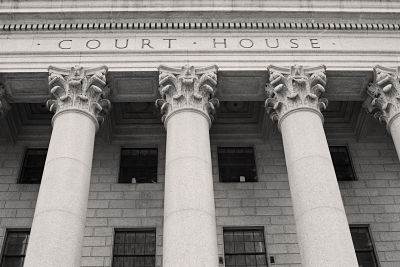When you are charged with a criminal offense in Texas, the court will set bail as a condition of your release pending trial. Bail often includes a bond requirement, i.e., the posting of a cash fee to guarantee you will make all required court appearances. If you fail to show up for a scheduled court date, or otherwise fail to follow the conditions of your bail, the judge can order a forfeiture of the bail bond and issue a warrant for your arrest.
Houston Court: Defendant’s Failure to Appear in Court During 3-Year Period Admissible as Evidence of “Consciousness of Guilt”
Bail bond forfeiture may also be used against you at trial. For instance, prosecutors can argue that your failure to appear is evidence that you attempted to “flee” the jurisdiction prior to trial. From this, a jury could infer your flight was evidence of your “consciousness of guilt” regarding the underlying criminal charge.
The Texas First District Court of Appeals here in Houston recently addressed a case where this type of bond forfeiture evidence was used. In Ramos v. State, the defendant faced charges of aggravated robbery. Specifically, prosecutors alleged the defendant joined a group of men in breaking into a Harris County family’s home and stole money and jewelry.

The defendant’s wife testified at his trial. On cross-examination, the prosecution asked her if her husband “forfeited his bond by failing to appear in the court proceedings for his case for almost three years.” The judge allowed the question over the defense’s objections. The wife replied that she and her husband had “moved a lot” during the three-year period in question, but she denied this was an attempt to avoid criminal liability.
The prosecution then introduced additional evidence regarding the defendant’s bond forfeiture, including the original bond paperwork and two arrest warrants issued against the defendant for failing to appear in court. The defendant, who elected to testify at trial, told the jury the reason he did not appear at some of his court dates what that he was still looking for an attorney to represent him.
The jury found the defendant guilty of aggravated robbery and sentenced him to 30 years in prison. On appeal, the defendant argued he should receive a new trial due to the admission of the bond forfeiture evidence described above. The First District rejected this argument and affirmed the defendant’s conviction and sentence.
The First District noted that the trial judge reasonably concluded that the bond forfeiture evidence presented by the prosecution showed the defendant was “motivated by a desire to reduce the likelihood of prosecution, conviction, or incarceration” and therefore could be used to show “consciousness of guilt.”
Contact Houston Criminal Defense Lawyer Tad Nelson Today
If you are out on bail pending trial, you need to carefully observe and follow all court-imposed conditions and deadlines. Even if you miss a court date by honest mistake, it could still be interpreted by the judge–and certainly by the prosecution–as an attempt to flee. And if you need legal advice and representation from an experienced criminal defense attorney, contact the Law Offices of Tad Nelson & Associates in Houston, Galveston, or League City today. Call (281) 280-0100.